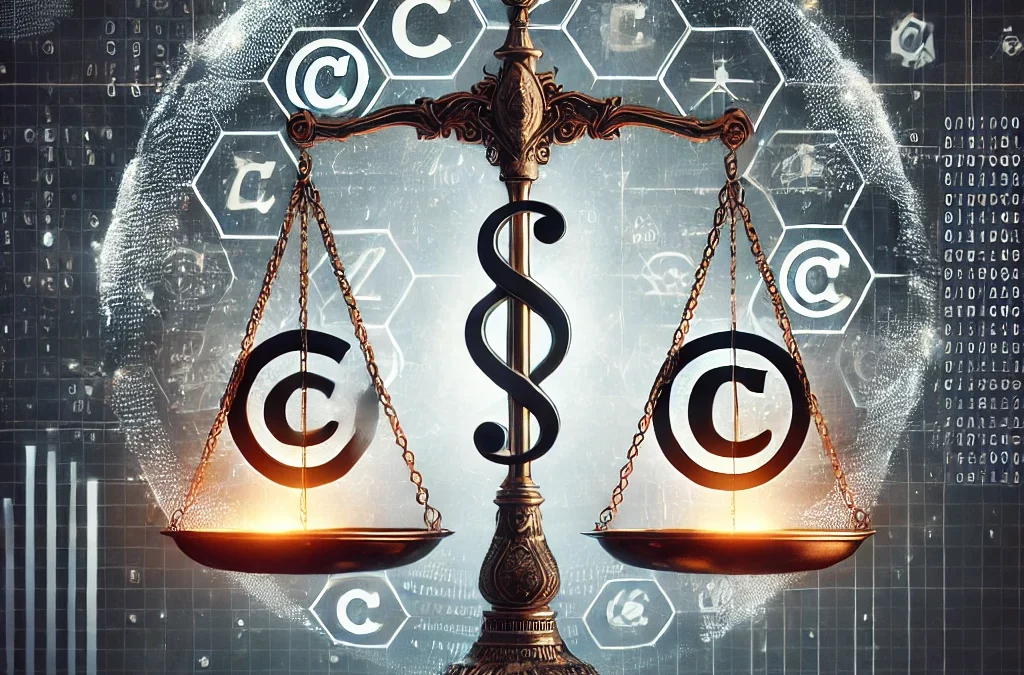In 2024, significant amendments were made to both copyright and trademark statutes in the United States, reflecting ongoing efforts to adapt to the rapidly evolving landscape of intellectual property (IP) law. These changes, coupled with the influence of international trade agreements, have had profound impacts on the protection and enforcement of IP rights. This article delves into these amendments, their implications, and notable cases that have shaped the IP landscape this year.
Amendments to Copyright and Trademark Statutes
Copyright Statute Amendments
One of the most notable amendments to the U.S. copyright statute in 2024 was the extension of copyright protection for digital works. This amendment ensures that creators of digital content, including software, multimedia, and online publications, enjoy extended protection against unauthorized use. The term of protection for these works has been extended by an additional 20 years, making the total duration 70 years after the death of the author, aligning with the protection duration for traditional works.
Additionally, new provisions were introduced to address the growing issue of digital piracy. The amendments impose stricter penalties for individuals and entities found guilty of distributing pirated content, particularly through online platforms. This move aims to deter the rampant spread of pirated digital media and software, which has become increasingly prevalent with the rise of digital distribution channels.
Trademark Statute Amendments
The 2024 amendments to the trademark statute focused on streamlining the renewal process and enhancing the protection of well-known marks. The renewal period for trademarks has been adjusted to every 15 years instead of the previous 10-year requirement. This change aims to reduce the administrative burden on trademark owners and the United States Patent and Trademark Office (USPTO).
Moreover, the amendments introduced a new provision that grants enhanced protection to “famous” trademarks, preventing their dilution and unauthorized use across different industries. This change is particularly significant for global brands seeking to maintain their distinctiveness and reputation in a highly competitive market.
Impact of International Trade Agreements
International trade agreements have played a crucial role in shaping U.S. copyright and trademark law in 2024. The United States-Mexico-Canada Agreement (USMCA) and the European Union-United States Trade Agreement have both introduced provisions that harmonize IP laws across borders.
Under the USMCA, member countries agreed to adopt uniform standards for copyright protection, including the extended term for digital works and stricter anti-piracy measures. This alignment facilitates cross-border enforcement of IP rights and ensures that creators and trademark owners receive consistent protection across North America.
Similarly, the European Union-United States Trade Agreement introduced mutual recognition of trademarks and streamlined procedures for registering and enforcing trademarks in both jurisdictions. This agreement simplifies the process for U.S. businesses to protect their brands in the European market and vice versa, fostering greater international trade and cooperation.
Notable Copyright and Trademark Infringement Cases
2024 saw several high-profile copyright and trademark infringement cases that have set important precedents in IP law.
Universal Music Group v. ByteDance: In a landmark case, Universal Music Group sued ByteDance, the parent company of TikTok, for unauthorized use of copyrighted music in user-generated content. The court ruled in favor of Universal Music Group, awarding significant damages and mandating stricter licensing agreements for music used on the platform.
Apple Inc. v. Corellium LLC: Apple Inc. pursued legal action against Corellium LLC for creating virtual replicas of iOS devices without authorization. The court found Corellium guilty of copyright infringement, emphasizing the need for explicit permissions when replicating digital environments.
Nike v. StockX: Nike sued StockX, an online marketplace, for unauthorized use of its trademarks in non-fungible tokens (NFTs). The court ruled in favor of Nike, establishing a precedent for the application of trademark law to digital assets and NFTs.
Changes in Copyright Duration and Trademark Renewal Requirements
As previously mentioned, the duration of copyright protection for digital works has been extended by 20 years, providing creators with 70 years of protection after their death. This change aligns the protection period for digital and traditional works, offering consistent safeguards for creators across different mediums.
Trademark renewal requirements have been adjusted to every 15 years, reducing the frequency of renewals and easing the administrative burden on trademark owners. This amendment reflects an effort to streamline IP management processes and ensure that trademarks remain protected without imposing undue burdens on businesses.
Developments in the Entertainment Industry
The entertainment industry, particularly music and film, has witnessed significant developments in copyright and trademark law in 2024.
Music Industry: The introduction of stricter anti-piracy measures has had a profound impact on the music industry, curbing the unauthorized distribution of digital music. The extended copyright term for digital works ensures that artists and record labels benefit from prolonged protection, incentivizing creativity and investment in new music.
Film Industry: The film industry has also benefited from enhanced copyright protection for digital content. The amendments provide filmmakers with extended protection for their works, deterring piracy and encouraging the production of high-quality films. Additionally, the increased penalties for digital piracy have led to a reduction in unauthorized streaming and distribution of films.
Conclusion
The 2024 amendments to copyright and trademark statutes, influenced by international trade agreements, have significantly strengthened the protection of intellectual property rights in the United States. These changes, coupled with notable infringement cases and developments in the entertainment industry, underscore the evolving landscape of IP law. As the digital world continues to grow, these amendments ensure that creators and trademark owners receive robust protection for their valuable assets, fostering innovation and creativity in the years to come.

